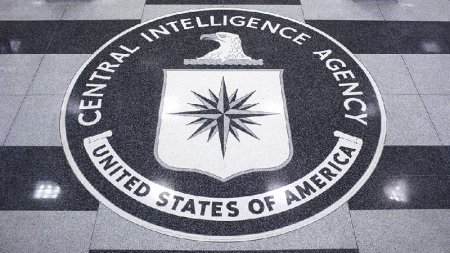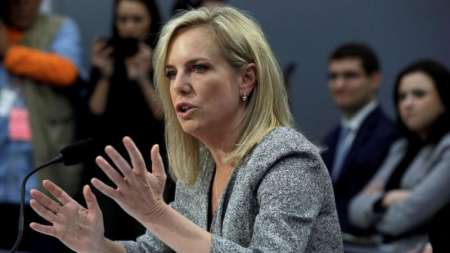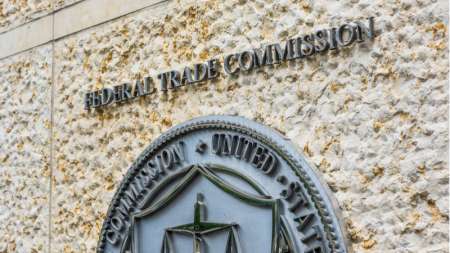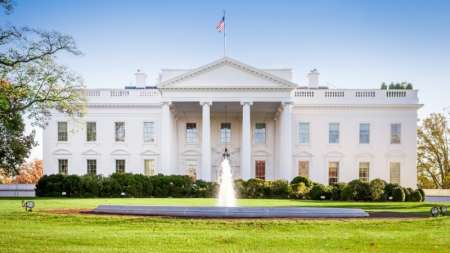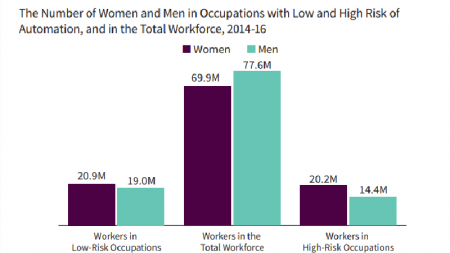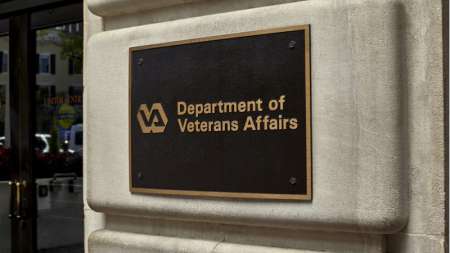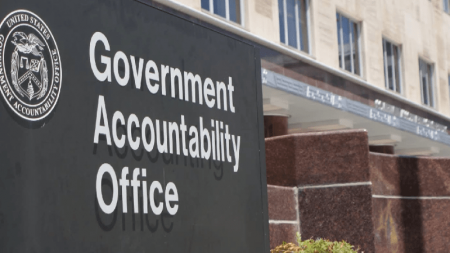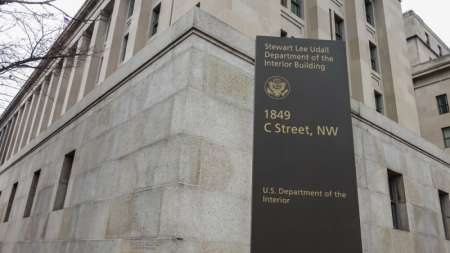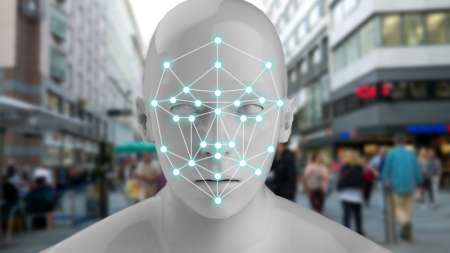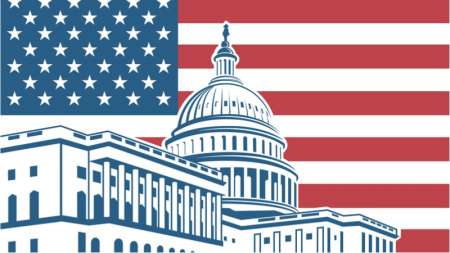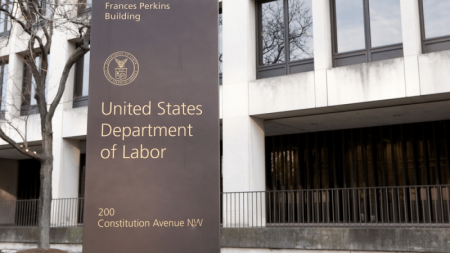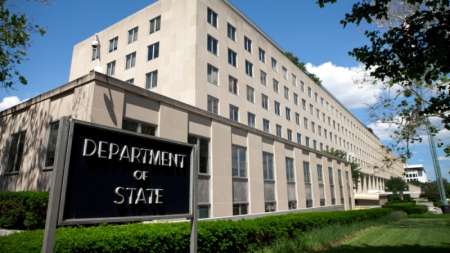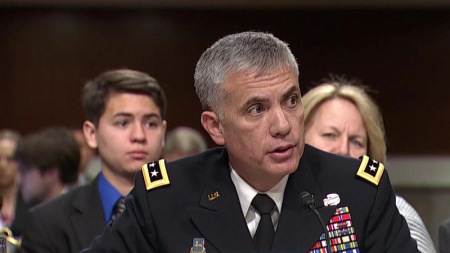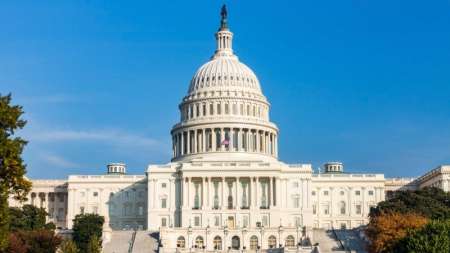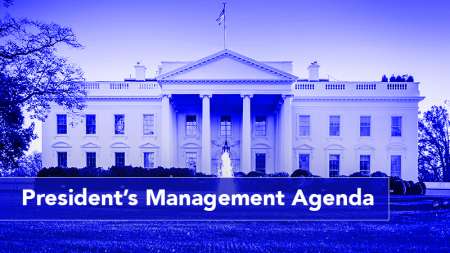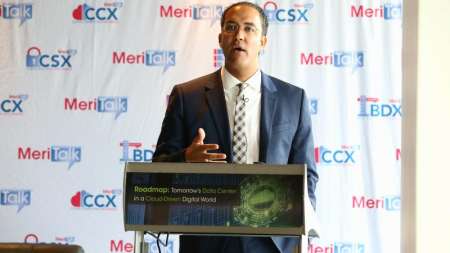The question of the best way for transitioning to cloud infrastructures is a big one for Federal agencies. One approach to solve this issue is a slow, measured migration. Another approach is a more dramatic transformation in a shorter period that might be painful, but allows agencies to reap the benefits of cloud migration much sooner. The best approach for agencies to successfully transition depends on the agency itself, its mission, and what officials are looking to achieve. […]
The now-former CIO and director of the Central Intelligence Agency’s (CIA) IT enterprise John Edwards has been newly appointed as the deputy chief operating officer (COO) at the CIA. […]
To improve cybersecurity in the U.S., a whole of government approach isn’t enough – the nation needs a “whole of society” approach to cybersecurity, said Homeland Secretary Kirstjen Nielsen during a speech hosted by Auburn University. […]
The Federal Trade Commission (FTC) recapped a busy year in enforcement actions the agency undertook in 2018 in its newly issued privacy and data security update. […]
After reviewing four major and software-intensive space defense programs within the Defense Department (DoD), the Government Accountability Office (GAO) found in a report today that DoD software development approaches aren’t optimized to meet the programs’ needs. […]
The Department of Energy (DoE) and Intel announced today that they will team up to deliver the first supercomputer with a performance of one exaFLOP–“to a ‘quintillion’ floating point computations per second”–in the United States. […]
The White House’s proposed FY2020 budget includes $87.70 billion for IT spending, an increase of close to $1 billion for civilian agencies, but a decrease of nearly $1.25 billion in unclassified defense IT spending, according to the Analytical Perspectives document released today by the Office of Management and Budget. […]
Amid research and reports concerning the impact automation and artificial intelligence (AI) will have on the American workforce, the way in which technological change will endanger individuals’ jobs on a gendered basis remains largely unexamined. […]
The Office of Management and Budget (OMB) said today that cybersecurity-related spending is due to rise by five percent in FY2020 on a government-wide basis under President Trump’s FY2020 budget proposal. […]
The Office of Inspector General (OIG) Export-Import Bank ((EXIM Bank) of the United States released KPMG’s independent audit report on EXIM Bank’s information security program for FY2018 on March 13. In the report, KPMG, a public accounting firm, provided 14 recommendations that “should strengthen…EXIM’s information security program.” […]
The Department of Veterans Affairs has made progress in meeting Federal Information Security Modernization Act (FISMA) requirements, but still needs to work on most of the recommendations from previous years, a new FISMA audit released last week found. […]
The Government Accountability Office (GAO) last week issued recommendations on how the Department of Defense (DoD) can better go about implementing the position of Chief Management Officer (CMO) – a position that took ten years to fill with a confirmed appointment after it was approved by Congress in 2008. […]
The Democratic National Committee (DNC) Chief Technology Officer (CTO) Raffi Krikorian is resigning from his position after holding it for two years, during which he helped the party reform and modernize its data practices and digital security in light of DNC hacks during the 2016 presidential election, according to a published report. […]
D.C. Metro is planning to hack cybersecurity systems over the next few months, but not to worry–they’re hacking their own 7000 Series railcars to determine whether missing cybersecurity measures in the railcar contract left Metro data exposed. […]
The Department of the Interior received 18 security-related recommendations in a KPMG Federal Information Security Modernization Act (FISMA) audit, which identified several information security risks across the agency. […]
Sens. Roy Blunt, R-Mont., and Brian Schatz, D-Hawaii, introduced the Commercial Facial Recognition Privacy Act yesterday in a bipartisan effort to regulate facial recognition technology to protect consumers and their data. […]
Two senators this week introduced a bipartisan piece of legislation that aims to “to protect the integrity of the security clearance process and ensure that it cannot be abused for political purposes.” Sens. Mark Warner, D-Va., and Susan Collins, R-Maine, introduced the Integrity in Security Clearance Determinations Act on Thursday. […]
Forty-eight House members submitted a bipartisan letter to Chairwoman Nita Lowey, D-N.Y., and Ranking Member Kay Granger, R-Texas, of the House Appropriations Committee yesterday to include back pay for Federal contractor employees in the upcoming funding legislation. […]
Amid discussions of data governance at an IBM Think Gov panel yesterday, Department of Homeland Security Data Manager Col. John Scott explained an interagency predictive analytics program in development between the Departments of Defense (DoD) and Veteran Affairs (VA). […]
The government has been trying to apply artificial intelligence to combat the opioid crisis, with projects like real-time mapping of the signs of illegal drug use, and prescription monitoring programs to identify high rates of opioid prescriptions and incidents of “doctor shopping” for the drugs. […]
The Department of Labor (DOL) on March 13 announced creation of a Chief Data Officer (CDO) position in accordance with the OPEN Government Data Act, which includes directing the heads of each Federal agency to “designate a nonpolitical appointee employee in the agency as the CDO of the agency.” […]
Sen. Kamala Harris, D-Calif., on Thursday introduced the Digital Service Act, which would increase funding for the U.S. Digital Service (USDS) and provide a conduit for state and local governments to get USDS grants to fund information technology (IT) modernization efforts. […]
In another effort from Congress to expand transparency in U.S. election systems after, Sens. Ben Cardin, D-Md., Amy Klobuchar, D-Minn., and Chris Van Hollen, D-Md. announced today that they will reintroduce their Election Systems Integrity Act. […]
Officials from various Federal agencies are focusing on data-driven approaches, utilizing blockchain, and business-focused functions to brace for a digital future. […]
The Cyber Diplomacy Act, H.R. 739, was scored by the Congressional Budget Office (CBO) on Wednesday and the CBO found it would not have a material impact on government spending. […]
Two members of the House Armed Services Committee said at a hearing on Wednesday they support continuation of the “dual-hat” command structure which finds Gen. Paul Nakasone heading both U.S. Cyber Command and the National Security Agency. […]
Sens. Ron Wyden, D-Ore., and Tom Cotton, R-Ark., asked the Senate Sergeant at Arms in a March 13 letter to disclose to each member of the Senate “the extent of the cyber threats faced by the U.S. Senate–and by extension, our democracy,” and said disclosure of that information was “imperative in order to help the U.S. Senate address important cyber-security needs.” […]
The Director of National Intelligence has announced the appointment of Erin Joe as director of the Cyber Threat Intelligence Integration Center (CTIIC), which as its name suggests integrates cyber threat data from government and other sources, facilitates threat-data sharing and supports government interagency planning of responses to adversaries. […]
The Office of Management and Budget (OMB) will not be providing its regular quarterly update on President’s Management Agenda (PMA) goals this month. […]
Rep. William Hurd, R-Texas, stressed at IBM’s Think Gov event today that America needs to lead the world in developing 5G wireless networks and artificial intelligence (AI) capabilities, especially with China on the rise as a voracious international competitor, and said successful development and application of the two technologies are inextricably linked. […]


